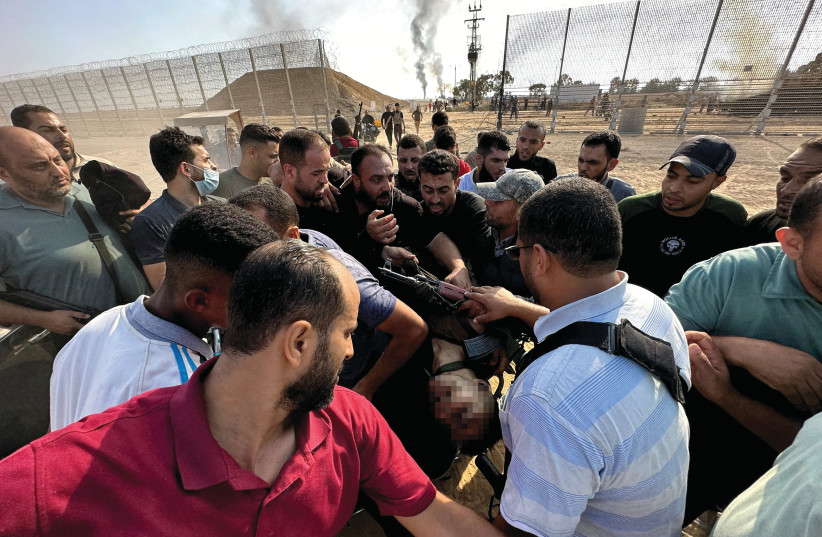The families of five Supernova festival attendees murdered in the October 7 Hamas massacre filed a lawsuit in the Jerusalem District Court on Wednesday against the Associated Press and Reuters for their employment of photo-journalists who accompanied the terrorists on their pogrom.
Representatives of the parents of Shani Louk, May Naim, Lotan Abir, Guy Gabriel Levi, and Shalev Madmoni argued that the news agencies were liable for journalists in their employ whose photographs knowingly inspired further violence.
The lawsuit contended that the journalists participated in the massacre and received compensation from Reuters and AP for their involvement by selling or licensing the image rights. It was argued that a number of images of serious crimes were uploaded to the news agencies’ websites, whose rights belong to them and only sometimes credited to the news agencies.
It was unlikely that the journalists did not know about the massacre ahead of time, given the photographs they took at the very beginning of the attack, yet did not alert the authorities, the filing charged.
The publication of the photos in the early hours of October 7 inspired thousands of Gazans to swarm into Israel to conduct further violence, the lawsuit claimed.

In an Instagram live video, Reuters and AP freelancer Ashraf Amra and Reuters freelancer Muhammad Fayq Abu Mustafa described how they were at the pogrom from the very beginning, where they documented the lynching of a soldier and other acts of violence and encouraged others to go into Israel and follow suit.
Freelancers had direct access to Hamas members and Israeli hostages
AP freelancer Hassan Eslaiah was alleged to have direct contact with Hamas, the lawsuit said, pointing to a photo of him posing with Hamas leader Yahya Sinwar. He also breached the border fence and transferred photos to AP.
Hatem Ali, another AP freelancer, was said by the lawsuit to have taken photos of great-grandmother Yaffa Adar, 85, as she was being kidnapped from Kibbutz Nir Oz, as well as of Kfar Aza resident Yarden Bibas being beaten by a mob.
AP freelancer Ali Mahmud took photos of German-Israeli Shani Louk, whose family then suffered from seeing the body of their loved one mangled and desecrated in newspapers and on the Internet.
The families are demanding compensation for their suffering and the lifelong consequences of the pogrom.
The lawsuit follows a second lawsuit against AP filed in the Southern District of Florida on behalf of survivors, family members of victims, and those displaced by the massacre. The lawsuit also contends that AP ignored the close connections the photographers had to terrorist organizations.
AP said on Thursday that the Florida lawsuit was baseless and that it “had no advance knowledge of the October 7 attacks, nor have we seen any evidence – including in the lawsuit – that the freelance journalists who contributed to our coverage did.
“Documenting breaking news events around the world – no matter how horrific – is our job,” said AP Vice President of Corporate Communications Lauren Easton. “Without AP and other news organizations, the world would not have known what was happening on October 7.”
